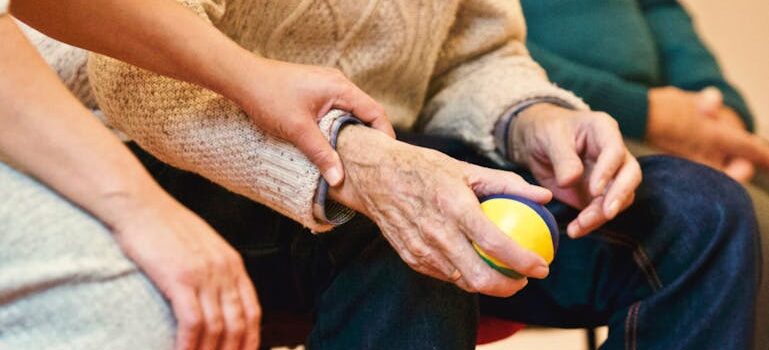Setting realistic goals during addiction recovery isn’t just a good idea; it’s a necessity. When you’re battling addiction, having clear, achievable targets can lead you step by step toward reclaiming your life. In this post, we will talk about why setting realistic goals in addiction recovery in West Virginia can make a huge difference in staying on track. Whether you’re dealing with personal problems or certain aspects of recovery, understanding how to set effective goals is key. So, let’s break it down and keep it simple: how can setting the right goals help you navigate through recovery? Let’s find out.
Why Setting Realistic in Addiction Recovery in West Virginia Matters
In the world of recovery, especially when considering rehabs in WV, setting realistic goals is s like laying the groundwork for a new building. If the foundation isn’t solid, everything else might crumble. Setting goals that you can actually reach helps keep you on track and makes sure that each step forward counts. When you set goals that are too big from the start, you’re setting yourself up for frustration. But when your goals are manageable—like attending a weekly therapy session or reaching out to a friend for support—you get to celebrate small wins regularly. These wins boost your motivation and self-esteem, showing you that, yes, you can do this.

In West Virginia, where community support and local resources play a huge role in recovery, having achievable goals means you’re never walking the path alone. You can set goals that involve others, like participating in community events or volunteer activities, which further improves your sense of belonging and purpose. So, keep your goals realistic, celebrate the small victories, and watch how they lead you to bigger achievements. It’s not just about staying on the path; it’s about paving a path you can actually follow.
Taking a Good Look at Your Recovery Progress
When you’re on the journey of recovery, it’s important to take a step back and see where you really stand. This isn’t about judging yourself—it’s about knowing what’s working and what’s not so you can make smarter moves forward. Start by asking yourself some straightforward questions. How do you feel about your recovery so far? What parts of your daily routine help you feel stable, and which parts throw you off? Maybe you’re great at sticking to your meetings or therapy sessions but find it hard to resist temptations at parties or gatherings. Recognizing these moments helps you figure out what you need to work on.
Also, think about your emotional and mental health. Are you feeling more confident each day, or are there ups and downs that seem too wild? This can be a sign that you need to adjust your support system or recovery plan. Identifying your strengths gives you a solid base to build on, like knowing you have a supportive friend or a favorite stress-relief activity that really works. On the other hand, understanding your weaknesses isn’t a bad thing; it’s a direct map of what you need to work on next. By taking the time to honestly assess your current situation in recovery, you’re better equipped to handle the road ahead and make adjustments that truly suit your needs.
How to Know if You’re on the Right Track in Drug Rehab
Getting real with yourself about where you stand in your recovery journey can seriously help you stay on track. Start by looking at your daily habits. Are you sticking to your routine? If you’re keeping up with the schedule set by your support team in your drug rehab for young adults, that’s a good sign you’re moving forward. But if you’re skipping sessions or not engaging fully, it’s time to dig deeper and figure out why. Maybe you need a different approach, or perhaps there’s something in your plan that doesn’t fit your current situation.
Next, think about your recent interactions with others. Recovery can really improve how you connect with people. If you’re communicating better and feel more connected to those around you, that’s a win. If not, consider what might be holding you back. It could be a sign to work on your communication skills or to maybe address unresolved issues. Also, evaluate how you’re dealing with challenges. Are you better at managing stress? What about handling the urge to fall back into old habits? If you’re finding new ways to cope, that shows growth. If you’re still struggling, that’s okay.

Setting Goals for Now and Later
When you’re starting out in recovery, setting short-term goals gives you immediate checkpoints for which to aim. For instance, attending support meetings consistently is a solid short-term goal. It’s doable and gives you a sense of accomplishment pretty quickly. Another good one is maintaining your sobriety day by day or even week by week. Each day you stick to it, you’ve got something to be proud of. And then there’s establishing a daily routine—whether it’s when you eat, sleep, or exercise, routines help you manage your time and maintain control over your life.
Switching gears to long-term goals, these are your big-picture aims. They’re what you’re ultimately striving for in your recovery journey, providing you with direction and a sense of purpose. Long-term goals can be things like rebuilding relationships that were broken due to addiction. They might include returning to work or school, which marks significant progress and helps reintegrate you into everyday life. Achieving personal milestones, like a year of sobriety or completing a holistic therapy for addiction program, are also fantastic long-term goals that can motivate you to keep pushing forward.

Making the Most of West Virginia’s Recovery Support
West Virginia offers a variety of resources for those battling addiction. From support groups that bring people together to share their experiences and successes to counseling centers where you can get professional help. Community programs also play a big part, providing activities and support networks that keep you engaged and motivated.
When setting goals for recovery, the SMART goals framework is super helpful. SMART stands for Specific, Measurable, Achievable, Relevant, and Time-bound. By applying this framework, you can set clear and structured goals. For instance, instead of saying “attend more meetings,” a SMART goal would be “attend three support meetings each week for the next month.” This way, your goal is not only specific and measurable but also achievable and time-bound, making it easier to manage and track your progress.
The Role of Family and Friends in Supporting Recovery Goals
Involving family and friends in your recovery can also boost your chances of success. They can provide emotional support, help keep you accountable, and even join you in activities that promote recovery. It’s important to communicate your goals clearly to them, perhaps during a family therapy for addiction session, where a therapist can help mediate and make the process smoother.
You might also consider individual therapy for addiction to work through personal issues that could be impacting your relationships.
Tips for Talking About Your Recovery Goals with Loved Ones
Here are some ways you can talk about your recovery goals with your family and friends and get them involved in your journey.
- Be open and honest: Start by being honest about your challenges and what you’re aiming to achieve. Honesty builds trust and helps others understand your journey better.
- Use clear language: When you tell your loved ones about your goals, keep the language simple. Avoid medical jargon or complex terms that might confuse them.
- Set a regular check-in time: Make a plan to update your friends and family regularly. This could be a weekly coffee date where you talk about your progress and any new goals.
- Ask for specific support: Sometimes people want to help but don’t know how. If you need them to help you avoid certain triggers or you just need someone to listen, tell them clearly and directly.
- Celebrate milestones together: Whether it’s one week or one year sober, celebrate these milestones with your loved ones. It can be a small celebration, but it’s a way to recognize your efforts and share your success.
- Be patient and provide guidance: Remember, your family and friends might not always know the right thing to say or do. Give them the patience and guidance they need to support you the way you need.

Keeping Track and Adjusting Your Recovery Goals
Regularly checking on your progress is a big deal when you’re working towards recovery. There are several tools and methods you can use to keep track of your progress. Writing in a journal every day lets you reflect on your feelings and the steps you’re taking. There are also apps designed to help track your recovery milestones, mood changes, and daily achievements. Feedback from support groups is another great way to assess your progress, as it gives you perspective from people who are going through similar challenges.
Sometimes, the path to recovery requires some changes. Maybe you’re moving faster than expected, or perhaps you’ve hit a few obstacles. It’s perfectly okay to adjust your goals to fit your current situation better. This flexibility can help you avoid feeling stuck or discouraged. For example, if you’re in a partial hospitalization program and find certain aspects of the program too challenging or not challenging enough, discussing adjustments with your counselors can make your recovery more effective. By monitoring your progress and being flexible with your goals, you set yourself up for continued success in your recovery journey

Why You Should Reach Out to Recovery Professionals in West Virginia
Seeking help from professionals is a smart move when you’re dealing with addiction recovery. Therapists, counselors, and doctors have the tools and knowledge to guide you through the tough times. Harmony Ridge Recovery Center in West Virginia has plenty of local professionals specializing in helping people get back on their feet. These experts can tailor your recovery plan, give you access to the latest treatments, and provide support in ways that friends and family might not be able to.
Overcoming obstacles is part of the recovery journey. Common obstacles include the temptation to fall back into old habits, dealing with stress without substances, and navigating relationships during recovery. When these challenges appear, having a professional to talk to can make a big difference. They can offer new strategies or change your recovery plan to help you stay on track. It’s also important to stay resilient. Recovery isn’t always a straight line; it has its ups and downs.
When you are having a rough day, leaning on your support network and not being afraid to ask for extra help from your recovery team can keep you moving forward. West Virginia’s recovery community is strong, and there’s always someone ready to help you through the tough times.

Start Your Recovery Journey with Realistic Goals in West Virginia
Setting realistic goals in addiction recovery in West Virginia is your first step towards a new life. Remember, recovery is a personal journey that takes time, patience, and plenty of courage. Whether you’re just starting out or you’ve been on this path for a while, every day is a chance to move closer to your goals. We offer many resources and a supportive community to help you along the way. Don’t hesitate to lean on them. Reach out to local professionals, join support groups, and stay connected with others who understand what you’re going through. And most importantly, keep setting those realistic goals. They will guide you, keep you focused, and show you how far you’ve come.



